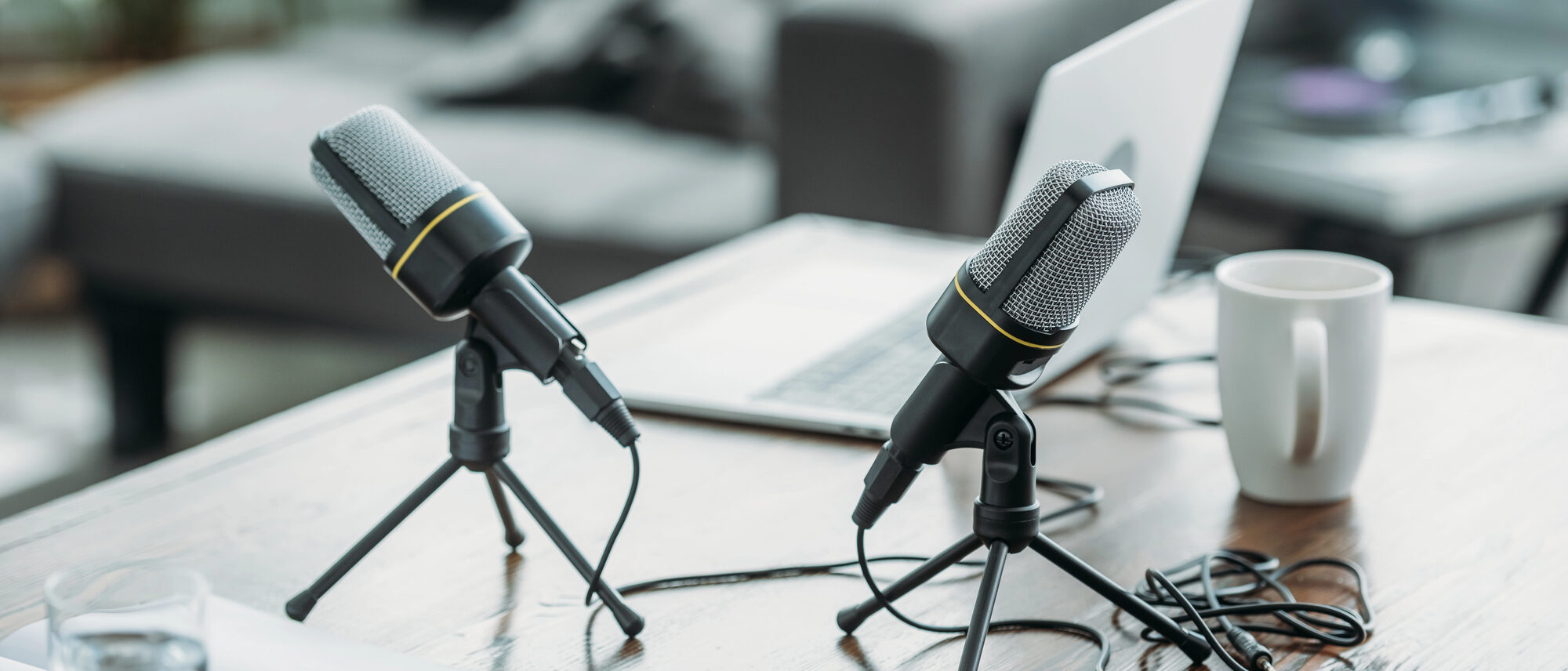How to Bet on Podcast-to-TV Adaptations: Predicting Which Podcasts Will Work on Screen

In recent years, there has been a surge in podcasts being adapted for television. With popular true crime and fiction podcasts like Serial, Limetown, and Homecoming becoming successful TV shows, producers are eager to find the next big podcast to adapt. But not every podcast makes for a seamless transition to the screen.
Here are some tips on how to predict which podcasts have the best shot at becoming a hit TV show.
Look for Name Recognition
One of the easiest ways to identify a podcast ripe for TV adaptation is to look for an already well-known title. Podcasts that are based on preexisting IP or hosted by celebrities typically come with a built-in fanbase that provides a readymade audience for the TV show. For example, the Los Angeles Times’ hit true crime podcast Dirty John, featuring reporter Christopher Goffard, was easily adapted into a Bravo scripted anthology series starring Connie Britton and Eric Bana. Similarly, the popular Lore podcast hosted by Aaron Mahnke was adapted into an Amazon Prime series thanks to Mahnke’s established fanbase.
Strong Central Characters or Premise
The most compelling podcasts tend to be built around fascinating central characters or an intriguing core concept that hooks listeners. A colorful central character or mysterious premise provides plenty of material for TV writers to expand upon. For instance, Wondery’s Dr. Death podcast chronicled the horrific crimes of sociopathic surgeon Christopher Duntsch, making for a smooth transition to a Peacock limited series with Joshua Jackson in the title role. Similarly, The Dropout podcast spotlighted the bizarre saga of Elizabeth Holmes and her fraudulent company Theranos, ideal fodder for a TV character study like Hulu’s series starring Amanda Seyfried.
Self-Contained Story Arc
Since the best podcast-to-TV adaptations tend to be limited series, it helps if the podcast itself has a self-contained story that wraps up within one season. While some podcasts are structured as ongoing anthologies or open-ended stories, TV adaptations benefit from a clear narrative arc. For example, Dateline’s The Thing About Pam podcast investigated the murder of Betsy Faria in just six episodes, providing a tidy story for NBC’s Renée Zellweger-led limited series. Serial’s first investigative season exploring the Adnan Syed case also lent itself well to a four-part HBO documentary adaptation.
Buzz and Critical Acclaim
It always helps if a podcast has made a major splash in the mainstream and garnered significant acclaim. Award recognition and placements on “best of” lists are good indicators a podcast could successfully transition to television. For instance, Wondery’s critically-lauded series WeCrashed: The Rise and Fall of WeWork was a natural fit for an Apple TV+ adaptation after hitting #1 on the Apple Podcasts charts. Similarly, viral sensations like S-Town and Serial generated the kind of buzz ideal for TV treatments.
Cinematic Qualities
Some podcasts instantly conjure cinematic images as you listen, making the leap to the visual medium of television an easy one. Immersive audio dramas like Limetown, with its eerie fictional story of a vanished town population, provide compelling readymade narratives. Even nonfiction podcasts like In the Dark with its atmospheric crime reporting lend themselves well to stylish TV adaptations. Essentially, the more visual a podcast is, the better suited it is for adaptation.
Availability for Interviews and Research
Podcasts that do extensive original interviews and research tend to work better for TV adaptations, as they provide a treasure trove of material for writers to draw from. Shows like Dr. Death and Dirty John landed TV deals because the podcast producers had direct access to the real-life key figures and exhaustive reporting on each case. Dense fact-finding podcasts indicate the stories could sustain episodic TV treatments.
The Power of the Podcast Medium
Ironically, some of the elements that make podcasts so appealing can be lost in translation when adapted for TV. The intimacy of the podcasting medium allows for nuance, subtlety, and slowly unfolding storytelling. Visually depicting stories originally meant to be heard could backfire. TV adaptations of podcasts like Homecoming, for instance, tend to work better as complements to the audio rather than replacements.
A Case Study: Sweet Bobby
The popular Tortoise Media podcast Sweet Bobby is the latest podcast to get the documentary treatment on Netflix. Debuting on October 16th, the film explores the story of Kirat Assi, a woman who was catfished for over a decade by someone posing as a man named Bobby.
Assi met Bobby online in her early 30s when he sent her a friend request on social media. They built an intimate connection and Bobby professed his love for Assi, but always had an excuse for why they couldn’t meet in person. This went on for 10 years, with Bobby claiming at various times he had suffered a stroke, mental health issues, or was shot.
Assi became suspicious after so long without meeting and eventually discovered the real Bobby had no idea who she was. Sweet Bobby follows Assi as she tries to uncover the truth behind the elaborate deception that spanned 10 years of her life.
Other Successful Adaptations
- How to Fix a Drug Scandal– A true crime documentary based on the podcast of the same name about the Sonja Farak drug lab scandal.
- The Two Killings of Sam Cooke – A documentary film spawned from the podcast One Night in Miami probing the mysterious murder of singer Sam Cooke.
- Lavell Crawford: New Look, Same Funny – Comedian Lavell Crawford’s Netflix specialwas based on segments from his podcast Lavell Crawford’s Couch Party.
With the success of podcast-to-TV adaptations like Dirty John and Dr. Death, Netflix is likely hoping the haunting story that captivated Sweet Bobby listeners will draw in true crime fans eager for another twisty catfishing saga. The trailer highlights the intimate interviews and decade-long timeline that should translate well from audio to film.
In short, the most promising podcasts for TV adaptations tend to offer rich stories, memorable characters, built-in name recognition, and cinematic appeal that naturally suits the visual medium. But part of what makes podcasts unique can disappear once depicted on a screen. With the right limited series format, though, podcasts and TV can happily co-exist.













